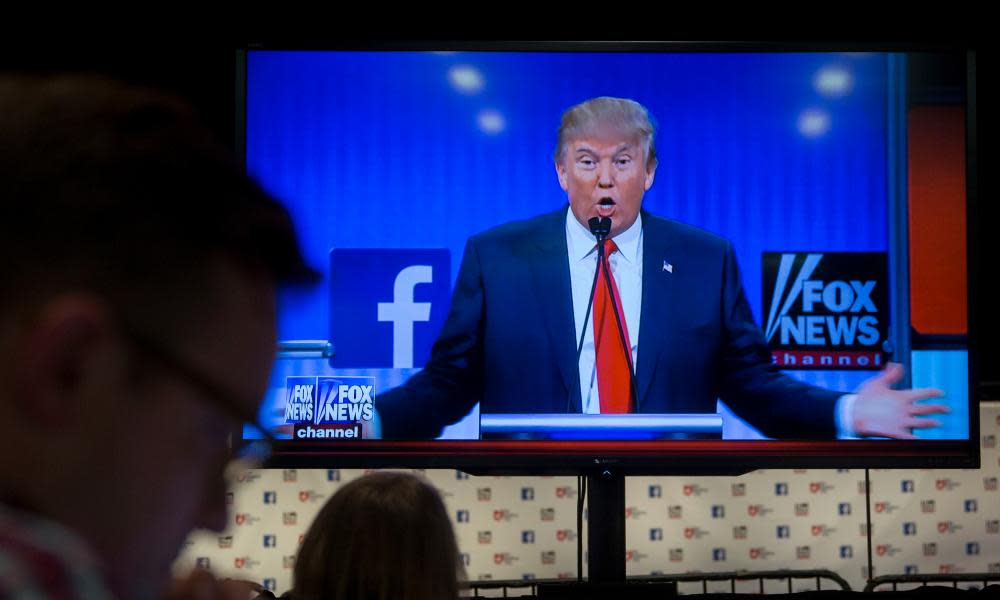Trump 2016 campaign 'targeted 3.5m black Americans to deter them from voting'

Donald Trump’s 2016 US presidential election campaign has been accused of actively seeking to deter 3.5 million black Americans in battleground states from voting by deliberately targeting them with negative Hillary Clinton ads on Facebook.
The secret effort concentrated on 16 swing states, several narrowly won by Trump after the black Democrat vote collapsed.
The claims have come from an investigation by Channel 4 News, which was leaked a copy of a vast election database it says was used by the Trump campaign in 2016.
Comprising the records of 198 million Americans, and containing details about their domestic and economic status acquired from market research firms, the investigation claimed voters were segmented into eight categories.
One was marked “deterrence”. Those placed in the special category – voters thought likely to vote for Clinton or not at all – were disproportionately black.
According to the investigation, the Trump campaign’s goal was to dissuade them from backing the Democrat entirely, by targeting them with “dark adverts” on their Facebook feeds, which heavily attacked Clinton and, in some cases, argued she lacked sympathy with African Americans.
The effort is said to have been devised in part by Cambridge Analytica, the notorious election consultant that ceased trading last year following revelations that it used dirty tricks to help win elections around the world and had gained unauthorised access to tens of millions of Facebook profiles.
In Michigan, a state that Trump won by 10,000 votes, 15% of voters are black. But they represented 33% of the special deterrence category in the secret database, meaning black voters were apparently disproportionately targeted by anti-Clinton ads.
In Wisconsin, where the Republicans won by 30,000, 5.4% of voters are black, but 17% of the deterrence group. According the Channel 4, that amounted to more than a third of black voters in the state overall, all placed in the group to be sent anti-Clinton material on their Facebook feeds.
Attacks ads that were used by Trump’s digital campaign included one known as the “super-predator” commercial, featuring a video clip of controversial remarks made by Clinton in 1996, which the Republicans claimed referred to African Americans.
Arguing that it was necessary “to have an organised effort against gangs”, and their members Clinton said: “They are often the kinds of kids that are called super predators – no conscience, no empathy. We can talk about why they ended up that way, but first, we have to bring them to heel.”
The Democrat apologised for using those words shortly after being confronted by Black Lives Matter activists about them in February 2016, but the language was picked up by Trump during the campaign and heavily recycled online.
Another attack ad reportedly came from a political action committee also run by Cambridge Analytica. It features a young black woman who appears to be a Clinton supporter abandoning her script to say: “I just don’t believe what I’m saying.”
When reminded that she is an actor, she replies that she is “not that good” of an actor
Jamal Watkins, the vice president of the National Association for the Advancement of Colored People (NAACP), said it was shocking and troubling that there was a covert attempt to suppress the black vote in 2016.
“So, we use data – similar to voter file data – but it’s to motivate, persuade and encourage folks to participate. We don’t use the data to say who can we deter and keep at home. That just seems, fundamentally, it’s a shift from the notion of democracy,” Watkins told Channel 4.
It is estimated that 2 million black voters across the US who voted for Barack Obama in 2012 did not turn out for Hillary Clinton. In Wisconsin, Trump’s vote matched Mitt Romney’s in 2012, but Clinton lost because her vote collapsed. The Democrat polled 230,000 votes fewer than Obama.
Key to the Trump victory was putting off black voters in cities like Milwaukee, Wisconsin. In one city ward, where 80% of its 1,440 voters were black, almost half or 44% of the ward was marked as for deterrence, a total of 636 people, 90% of whom were black.
Many other factors accounted for Clinton’s defeat, including legislation that was accused of suppressing the black vote.
Again, in Wisconsin, the Republican-run state has introduced measures requiring citizens to produce valid voter identification, which it was argued disproportionately affected poor and black voters.
The Trump campaign spent $44m (£34m) on Facebook advertising and generated 6m adverts overall. But the passage of time has meant that only a handful of the attack ads used by the Trump campaign have been recorded, and Facebook will not say how many or which ads were used at the time.
The company said that “since 2016, elections have changed and so has Facebook – what happened with Cambridge Analytica couldn’t happen today”. It added that it now has “rules prohibiting voter suppression” and was “running the largest voter information campaign in American history”.
The Trump campaign, the Republican national committee and the White House all declined to comment.
A senior official in the the Trump campaign has previously denied any targeted campaigns against individual groups.

 Yahoo News
Yahoo News 
